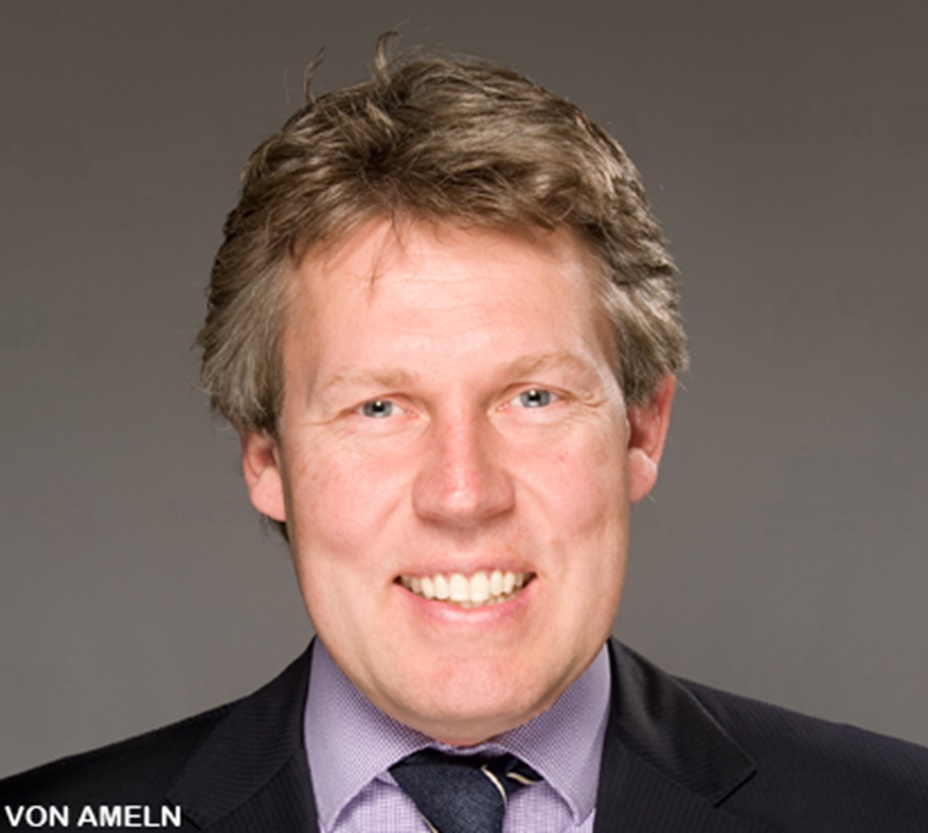Germany's top-flight hockey league, the Deutsche Eishockey Liga (DEL), is coming off a very successful '11-12 season during which it set an attendance record with an average of 6,059 fans during the regular season. The league also returns to free-to-air TV after signing a new broadcasting-rights deal with Austrian TV channel ServusTV and website laola1.tv. DEL CEO Gernot Tripcke took time to talk with SBD Global Staff Writer HJ Mai about the '12-13 season and the future of the league.
Q: The German Hockey League (DEL) returned to free-to-air TV this season, signing a broadcasting-rights deal with ServusTV and website laola1.tv. What do you expect from the league’s free-TV comeback?
Gernot Tripcke: A drastic increase in attractiveness for the DEL. We hope to reach a completely new demographic, people who have not been excited about our sport. This naturally would make us more interesting for potential sponsors.
Q: The DEL set a new attendance record last season with an average of 6,059 fans in the stands during the regular season. How do you see the future development in this area, and what does the league do to draw more fans?
Tripcke: Including the playoffs, we actually had an average of 6,280 fans at our arenas. We are very proud of this number because it means we rank third in Europe behind the Swedish and Swiss league, but ahead of Russian KHL (Kontinental Hockey League). The DEL can only influence the surroundings, but attracting fans is mainly the matter of clubs. And if I see that almost all 14 DEL cites have a modern and fan-friendly arena, it means we have made a big step forward.
Q: Football is by far the most popular sport in Germany. The DEL competes with the Beko Basektball Bundesliga (BBL) and the German Handball Bundesliga for the second place. How do you see your chances in regards to this, and how can the DEL separate itself from the other two?
Tripcke: We do not compare ourselves with football or any other sport. The surroundings of the various sports are simply too different. Therefore, we are focusing on improving our own surroundings. However, we are extremely satisfied with our attendance and revenue numbers.
Q: The DEL is one of the top hockey leagues in Europe. In your personal opinion, how does the DEL fare in comparison to the Russian KHL and the Swedish Elitserien in regards to quality and economic profitability?
Tripcke: In Russia and Sweden hockey is the No.1 sport. In the case of Russia, the incredible support of politics and the economy, without taking in consideration the league’s economic viability, plays a very important role. Therefore, the club’s budgets are inevitably higher. The quality of our league can keep up with the Swedish league and also with the majority of the clubs in the KHL, which has maybe five or six top team that are superior. Those clubs are elite because they spend 10 times as much for their players than what is the norm in the DEL.
Q: What are the league’s short-term and long-term goals?
Tripcke: Our focus is to increase the league’s domestic media presence, which we hope our new media partners will provide the necessary tailwind. In addition, we are hoping for an even better arena utilization, especially in the big markets.
Q: What economic developments do you pay close attention to?
Tripcke: We are currently forced to focus on tax and social security issues. In those areas we have huge competitive disadvantages that have in part existence-threatening tendencies for professional sport in Germany. To find a solution for these issues we teamed up with handball, basketball and football and created the “Initiative Profisport Deutschand” (Initiative Professional Sport Germany).
Q: What are the three biggest developments in sports business?
Tripcke: Science largely has been able to keep up with the professionalization of sports, which definitely has not been easy considering the rapid development over the last few years. I personally think that the specialization of the study of sports business in the areas of economy, media and practical training are very useful. However, there has to be an even better founded education in this area. At the moment, I see more business majors and lawyers in leadership roles at German professional clubs. In this regard, sports business has some catching up to do.
Q: What is the biggest challenge the DEL will face?
Tripcke: To use the current boost we receive from our new media partnerships with ServusTV and laola1.tv in a sustainable way to broaden hockey’s demographic. In addition, we want to activate our cooperation with the German Hockey Federation (DEB) regarding the national team in a meaningful way for both sides .
Q: In which area do you see the league’s biggest growth potential?
Tripcke: In the midterm, the biggest potential is certainly in the area of sponsorships, and the marketing of media rights also has room for improvement.
Q: What are your favorite websites and apps?
Tripcke: Naturally, the ones of the DEL and its media partners, where you now can find images every single game. Apart from that, the leading social-media networks such as Facebook and Linkedin.
Q: The development of which company/league do you follow very closely and with great interest?
Tripcke: All leagues across Europe, which we have a friendly relationship with through Hockey Europe, and all German professional leagues that are part of the IPD.




